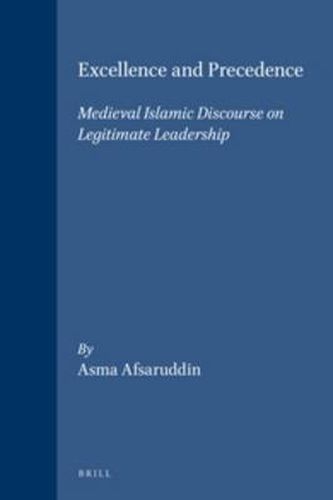Readings Newsletter
Become a Readings Member to make your shopping experience even easier.
Sign in or sign up for free!
You’re not far away from qualifying for FREE standard shipping within Australia
You’ve qualified for FREE standard shipping within Australia
The cart is loading…






This volume focuses on how legitimate leadership came to be defined in the formative period of Islam in terms of two key Qur'anic concepts: moral excellence ( fadl/fadila ) and precedence ( sabiqa ). These two concepts undergirded a specific discourse on leadership which developed in the first century of Islam. This discourse is reconstructed through careful scrutiny of the manaqib literature in particular, which contains detailed accounts of the excellences attributed to the Rashidun caliphs. This work stresses that all early factions, including the proto-Shi'a, subscribed to the Qur'anically-mandated vision of a righteous polity guided by its most morally excellent members. Such a conclusion forces us to rethink the nature of leadership in the earliest period and reconsider the criteria invoked to establish its legitimacy.
$9.00 standard shipping within Australia
FREE standard shipping within Australia for orders over $100.00
Express & International shipping calculated at checkout
This volume focuses on how legitimate leadership came to be defined in the formative period of Islam in terms of two key Qur'anic concepts: moral excellence ( fadl/fadila ) and precedence ( sabiqa ). These two concepts undergirded a specific discourse on leadership which developed in the first century of Islam. This discourse is reconstructed through careful scrutiny of the manaqib literature in particular, which contains detailed accounts of the excellences attributed to the Rashidun caliphs. This work stresses that all early factions, including the proto-Shi'a, subscribed to the Qur'anically-mandated vision of a righteous polity guided by its most morally excellent members. Such a conclusion forces us to rethink the nature of leadership in the earliest period and reconsider the criteria invoked to establish its legitimacy.